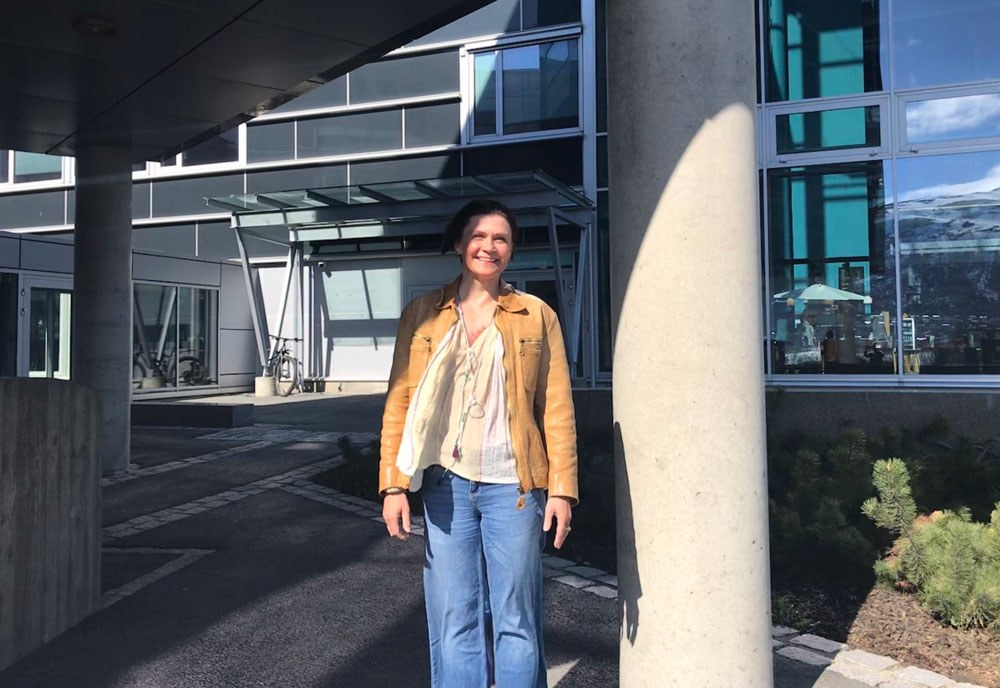Working with us
Are you looking for a new challenge? Have a look through our vacancies and read more about what it is like to work at the Norwegian Centre for E-health Research. Please notice that all vacancies are in Norwegian.
The Norwegian Centre for E-health Research is located in SIVA Innovation Centre in Tromsø. Around 80 people with expertise in health, information technology, statistics, sociology, psychology, education and economy are working together here.
Competence
The Norwegian Centre for E-health Research wants to be in front of the e-health field. We ensure this through recruitment of top quality people, continuous skills development of the existing staff as well as extensive cooperation both nationally and internationally in our projects.
In our recruitment, we attach importance to ensure diversity in terms of gender, age and cultural background.
Work environment
The Norwegian Centre for E-health Research have flexible working hours. Core hours are from 9:00 am to 3:00 pm.
All our employees are offered reduced price of membership by several fitness chains, and we have a good selection of company sports activities.
Through the University Hospital of North-Norway, our employees also have access to rent cottages (holiday homes).
Meet Kari, one of our researchers

1. What is it like working at the Norwegian Centre for E-health Research?
I have been working at the center since 2004, and am happy to have been involved in many exciting projects.
The researchers here have a unique closeness to the empirical field. We're on, all the time. I appreciate the great freedom we have in defining which questions we will try to answer.
As a social scientist it is both nice and challenging to work interdisciplinary. The technologists have knowledge of what is possible to obtain technologically, and health care professionals about illness and health. Our center also collaborates with the authorities.
2. Describe a typical day?
I mostly ride my bike to work. Then there are almost always one or more meetings. The days without meetings are the best, then I get to concentrate. The main job is to write articles, but other things must also be done, such as writing applications to get funding.
I do almost all the data collection myself, so there are many processes that need to be planned.
Me and my colleagues also spend time discussing what is interesting and what questions we should look at, of national interest - for the individual, organisations and society.
3. What do you actually do?
I collect and communicate knowledge of technology and health, both positive and more critical knowledge. It's about using technology, but also about people having to work with and receive healthcare in new ways.
The digital society is a society other than the pre-digital - not least in the health service. And this I acquire knowledge of. One could say that the engineers and economists are advancing technology development, while social scientists are addressing harmful effects.
Our knowledge is important, for example, we can see if digitisation gives social inequality. Technology intervenes in organisations, professional relationships, careers, and in our homes. What characterizes us in the digital health service? is a question we ask.
4. In conclusion: A great place to work?
As a social scientist I definitely recommend working here! We are applied scientists, who are useful in a broad sense, nationally. In the future, we need more social scientists who work interdisciplinary and are willing to look at all the different perspectives.
Social scientists can take the overall look. For example, medical distance monitoring means that services can be moved back home to people. Then we have to research the consequences.
PERSONAL FACTS
Name/title:
Kari Dyb, Senior Researcher
Qualifications:
Commercial Helicopter Pilot (USA), Cand.polit. in sociology (UiT) and PhD in sociology (UiT).
Career tip:
Be open and curious. Be willing to take many different perspectives when examining something.